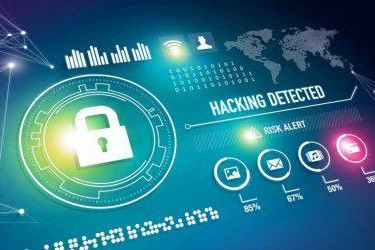
Hold The Virus: 10 Ways to Avoid Malware on Your Computer
Viruses and malware can do a lot of damage to your computer. There are steps you can take to avoid malware though. Read here to learn how to protect your PC.
The digital world has revolutionized our lives.
We now live in an age that would have been considered science fiction not so long ago. Every day we hold more technology in our smartphones than what took astronauts to the moon a few decades ago.
Clearly, the internet, smartphones, tablets, and computers provide us with an incredible amount of info.
But as our reliance on computers has grown, so have the dangers that accompany them. Never before has the online security of our countries and personal lives been such a concern to so many.
This fact’s demonstrated by the exponential increase in malware.
Ten years ago, for instance, the total amount of malware numbered 29.48 million. Sounds like a lot, right?
But compare that to 2018. This year there’s been 843.31 million malicious programs out there. Apparently, 350,000 new pieces of malware are registered every single day.
With such extreme figures, what can you do to protect yourself from such threats? How can you avoid malware?
We’re here to help. Keep reading to discover how to prevent malware from being a problem.
What’s Malware?
Before we go through the 10 ways to avoid malware, let’s take a look at what it actually is.
Malware’s short for “malicious software.” In simple terms, it’s any software that’s specifically designed to damage your computer is a form of malware.
It can come in many forms too, all with their own particular set of issues. Keeping in mind that malware comes in a huge variety of forms, here’s a list of common malware you should always endeavor to avoid.
Trojans
Remember the story of Troy? Where some angry Greeks, set on revenge, tricked their way behind the otherwise impassable walls of Troy by hiding in a giant wooden horse, to then open the gates to their army from the inside?
In terms of malware, Trojans do exactly the same thing. Disguised as genuine, normal software, a Trojan hidden within will open up your defenses to other nasty forms of malware outside.
Viruses
Everyone’s heard of viruses. They are to a computer what a virus is to us: they enter your system, latch onto healthy cells (files), and infect others. Viruses move quickly and can have all manner of damaging effects on your computer.
Spyware
These pesky types of malware are the secret service of the computer world. Once they’ve gained entry to your computer they spy on what you’re doing.
Someone, somewhere, is seeing everything you do online. That means your credit card numbers and passwords (to name a couple) are no longer secure and can be used in all manner of nefarious ways.
Adware
If you hate popups then you want to avoid adware. It’s what they do. It’s enforced advertising that’s the result of corrupt software you’ve downloaded.
As far as malware goes, this isn’t necessarily the end of the world. But once it’s a problem, there’s a danger of other malware attacks too.
Ransomware
Another common problem is being held to digital ransom by someone in control of the software.
Imagine downloading a file only for your computer to totally freeze and stop working. Next, a little sign pops up telling you to pay X amount of money in order to get your computer back. That’s the basic premise ransomware and, needless to say, it’s not a fun situation to end up in.
Why Does Malware Exist?
You’re probably wondering why anyone would write software for the sole purpose of damaging your computer. After all, as we’ve seen, malware can lead to a plethora of issues to deal with. It’s a downright awful thing to do.
But it’s a bit like asking why bad things happen to good people. The harsh reality is that it’s just a thing! Whether it’s a tech dude with a vendetta, an offshore attack on a nation’s security, or an individual selling their tech services to the highest bidder, malware is a problem that we have to deal with.
Of course, it’s natural to bemoan the existence of such a nasty, vindictive creation. But, frankly, that doesn’t help anyone. Given that we know it’s an issue, the better question is “How can you avoid it?”
And, what do you know, that’s what we’re talking about next!
10 Ways to Avoid Malware On Your Computer
On to the main event! Here are 10 things you can do to avoid getting damaging malware on your computer that can necessitate computer repairs.
1. Use Anti-Malware/Anti-Virus Software
The obvious first step to avoiding malicious software is to install anti-virus/anti-malware on your computer. It’s essential for keeping your computer unharmed.
A few years ago, it was found that a third of computer users in the U.S. didn’t have this installed. It isn’t a risk worth taking. Especially considering there are some decent free options available!
For instance, Microsoft users can benefit from their access to windows with free Microsoft anti-virus software.
2. Keep That Software Updated
Oh, and be sure to keep it up to date once you have anti-malware installed!
Keeping up with your computer’s security software updates is crucial to stay up to speed with the new threats arising each day. Otherwise, you’ll have outdated protection that’s unsuited to more modern malware.
3. Stay up to Date with Your Operating System Too
The same goes for your operating system (OS). Regardless of whether you’re using Windows, Linux, Unix, Ubuntu, Mac OS X or anything else, it’s essential that you regularly update it.
Sometimes updates are optional and others are compulsory. But regardless of timing, it can be incredibly helpful to keep your OS up to date. The update will protect you from the latest security issues detected by the OS, to ensure you have the best chance of staying free of malware.
4. Do Daily Computer Scans
Remember how 350,000 new pieces of malware are created every day?
That means there’s a bunch of new threats to avoid on a daily basis. Performing the updated we just recommended is a great way of preventing these from becoming a problem.
But doing daily full scans of your computer’s hard drive is another way of preventing issues and discovering them early. Do so with your anti-malware software. The option to perform a scan is likely to be front and center of any display.
5. Avoid Open Wi-Fi
We all love the free Wi-Fi available at cafes, libraries, airports and so on. But unfortunately, it places your computer and other devices at risk if you’re unlucky.
Anyone up to no good can easily interfere with your device through the network. They can also get access and steal an abundance of information such as your location, personal communications, passwords, login details and files you send, to name a few.
In the interest of avoiding malware and other online problems, try to avoid connecting to open networks.
Or, if you know you’ll have to rely on them on occasion, look into working through a VPN (virtual private network). Using a VPN means your internet connection is encrypted, which protects your privacy from any unwanted individuals.
Essentially, open Wi-Fi means the information you send over the network is available to prying online eyes. A VPN stops that happening.
6. Make Sure Your Browser’s Secure
Outdated browsers such as Internet Explorer put your computer at risk. They’re not secure enough to protect you from online issues.
Instead, strive to use the internet via the safest and commonly recommended browsers: Google Chrome, Microsoft Edge, and Mozilla Firefox. All are secure and regularly updated to ensure you’re browsing as safely as possible.
7. Don’t Trust Dodgy Emails
If you receive an email from an individual you don’t recognize, or with an offer that seems too good to be true, don’t open it!
It’s common for such emails to contain malware.
Phishing attacks (the act of sending fraudulent emails designed to make you reveal personal info) are getting harder to spot too. For instance, you may receive an email from Amazon about a recent order, asking you to verify your bank details in order to resolve an issue.
As a good rule of thumb, do not open and/or pay heed to any company email that seems too good to be true, somewhat bizarre, or that requires you to input your private information.
8. Beware of Download Buttons
Have you ever tried to download something to your computer, only to find a mass of pop-ups hitting your screen? The more you cancel, the more they appear…and so on. Or perhaps you click one, only to receive a message that your computer’s been infected and needs immediate attention.
These are only two examples of issues that arise from dodgy download buttons on sites. We’ve all seen them. They’re fairly common on rogue streaming sites, for example.
Generally, they’re big, bold and have a colorful background.
Avoid clicking any button that you don’t trust. If you’ve never used the site before and if the button style doesn’t match the rest of the site, or if you’re simply unsure, then don’t click! It can be a one-way ticket to malware!
9. Exercise Caution When Installing New Programs
When relying on reputable brands and companies, you can usually be confident about the safety of the programs you install.
It’s the smaller, lesser known sites and products that can get you into trouble. Unfortunately, a well-sold program can lead you unwittingly into an issue. Inbuilt malware is common in unscrupulous programs.
Be sure to research the reviews and recommendations online before installing anything.
Equally, good quality anti-malware software will usually tell you if a program’s safe to install. If it’s not, the software will let you know and you can cancel the install. This is yet another incentive to have anti-virus on your computer!
10. Don’t Use the AutoRun Feature
AutoRun is a Windows feature that enables the system to perform actions in a predetermined way.
Think about the option you have to automatically transfer images when plugging in your camera to your computer. Or how your DVD starts as soon as you put it in the drive. That’s AutoRun.
Sure, this can come in handy at times. But in the interest of malware avoidance, it can pay to turn it off. This is because some malware’s designed to install itself automatically to new media when it gets plugged in.
For example, with AutoRun enabled, a virus on a particular drive of your computer will immediately infect an external hard disk when next used.
The best course of action is to turn off AutoRun for Windows 10.
Time to Sum Up
There you have it: 10 ways to avoid malware on your computer.
Malicious software is a frustrating part of our digital lives. The trend of the last 10 years demonstrates how, as our use of computers increases, the presence of this threat is only set to continue.
Of the numerous types that exist, viruses, spyware, ransomware, Trojans, and adware are 5 varieties you’ll want to avoid in particular. In order to do that, and forgo the nuisance and damage created by malware, it’s crucial to have the right know-how.
Hopefully, these tips will help you navigate the online world happily — and without malware.
Now we’d like to hear from you. What, if anything, do you currently do to avoid malware? Are you already following the rules on this list?
Let us know in the comments! And be sure to contact us with any other questions.
